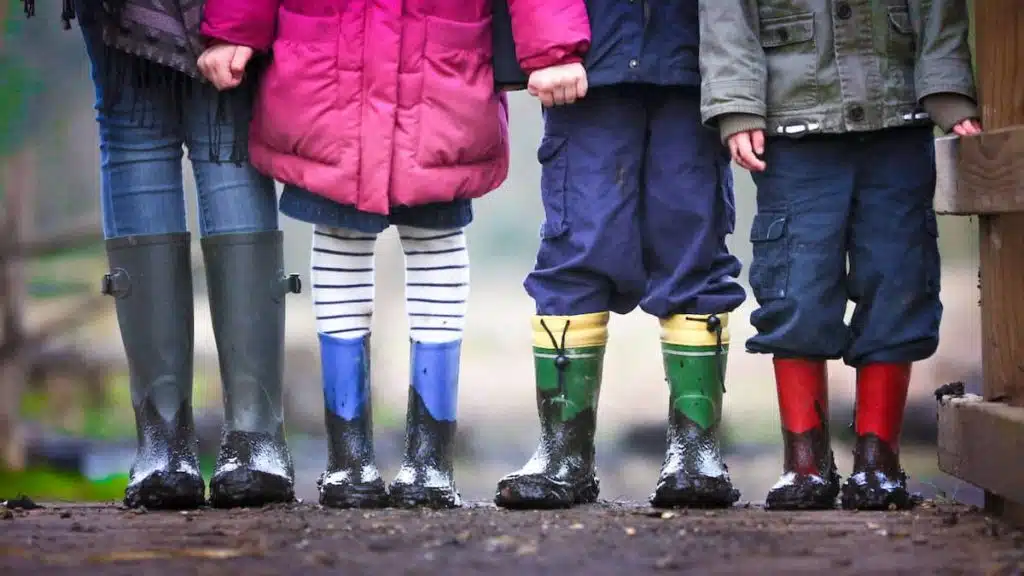Ministers have pledged that landmark children’s rights legislation will go ahead.
Deputy First Minister John Swinney said the Scottish Government remained committed to incorporating the United Nations Convention of the Rights of the Child (UNCRC) into domestic law to the maximum extent possible.
While Scottish Parliament unanimously backed The UNCRC (Incorporation) (Scotland) Bill in March, it could not be implemented after the UK Government law officers brought a legal challenge.
Certain parts of the Bill fall outwith the competence of the Scottish Parliament, the Supreme Court has ruled. While limitations in the devolution settlement have been exposed as a result of the court ruling, the protections in the Bill will go ahead.

The Deputy First Minister added: “While we fully respect the court’s judgment and will abide by the ruling, we cannot help but be bitterly disappointed. It makes plain that we are constitutionally prohibited from enacting legislation that the Scottish Parliament unanimously decided was necessary to enshrine and fully protect the rights of our children.
“The judgment exposes the devolution settlement as even more limited than we all - indeed the Scottish Parliament itself - had understood. It sets out new constraints on the ability of our elected Scottish Parliament to legislate to protect children’s rights in the way it determines.
“There is no doubt that the implications of this judgment are significant from a children’s rights perspective. This Bill will not now become law in the form which our Parliament agreed, but we remain committed to the incorporation of the UNCRC to the maximum extent possible as soon as practicable. Whilst the judgment means that the Bill cannot receive Royal Assent in its current form, the majority of work in relation to implementation of the UNCRC can and is continuing.
“The UNCRC is the most widely ratified international treaty, but very few countries have committed to take the journey that Scotland so clearly wants to take. To everyone who has walked with us this far on that journey, encouraging us along the way, I want to reassure you that we will reach our destination. This Government remains committed to the incorporation of the UNCRC to the maximum extent possible.
“There is no doubt that we may not yet wholly comprehend all the implications from this judgement – it will require careful consideration and I will keep Parliament updated.”
The UNCRC is the most widely ratified human rights treaty in the world and sets out the specific rights that all children have to help fulfil their potential, including rights relating to health and education, leisure and play, fair and equal treatment, protection from exploitation and the right to be heard.
Scotland will become the first country in the UK and the first devolved nation in the world to directly incorporate the UNCRC into domestic law following the Bill.
It would make it unlawful for public authorities to act incompatibly with the incorporated UNCRC requirements, giving children, young people and their representatives the power to go to court to enforce their rights.
The European Charter of Local Self-Government (Incorporation) (Scotland) Bill was intended to develop and further strengthen the relationship between the Scottish Government and local government in Scotland, and so ensuring that priorities and policies are developed and delivered in partnership.
This Bill could also not be implemented because of a legal challenge brought by UK Government law officers. The Supreme Court ruled that certain provisions in the European Charter of Local Self-Government (Incorporation) (Scotland) Bill are outwith the competence of the Scottish Parliament. The Bill started as a Member’s Bill and was passed unanimously by the Scottish Parliament in March 2021.
Children and Young People’s Commissioner Scotland Bruce Adamson said: “Scotland is committed to protecting the rights of children and young people. The Scottish Parliament was unanimous in its support for this law which would ensure that decisions are taken in children’s best interest; that children have a say in decision making; and that all available resources are used to the maximum extent possible to fulfill rights like education, health, and an adequate standard of living – and that there is accountability when things go wrong.
“The last 18 months have shown just how urgent it is to strengthen rights protections for children. We will work with the Scottish Government and the Scottish Parliament in its role as a Human Rights Guarantor to get this done as soon as possible,” he concluded.


